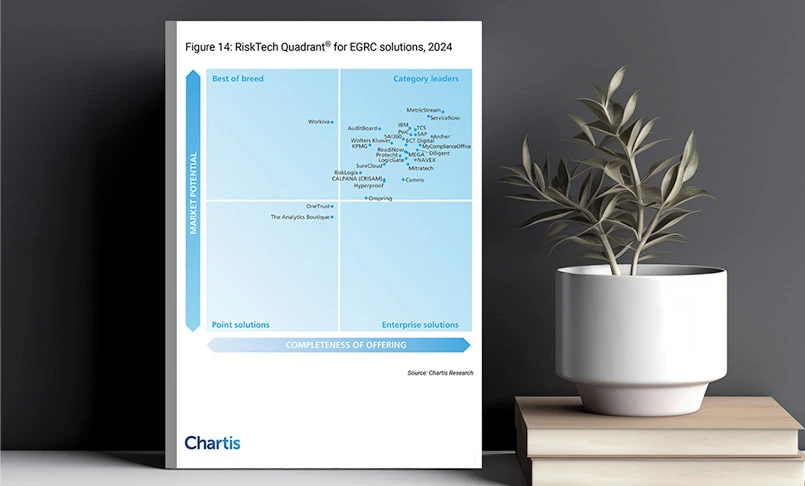Why Should Finance Take the Lead on ESG Strategy?
- ESGRC
- 14 April 23

Introduction
Environmental, social, and governance (ESG) considerations have become increasingly important for companies and investors alike. With the growing recognition of the impact of businesses on society and the environment, investors are increasingly prioritizing ESG factors when making investment decisions. In today's increasingly sustainability-focused business landscape, finance has a critical role to play in driving ESG strategy, both within the organization and as a global industry.
Here are the top reasons.
Promotion of Sustainable Business Practices
First and foremost, the role of finance and the Chief Financial Officer (CFO) has changed significantly over the years. CFOs are no longer solely focused on financial reporting and compliance, but also play a key role in formulating and executing the overall strategy of the organization. They use their financial expertise to help drive growth, reduce costs, and manage risks.
Allocation of capital to various projects and investments is primarily driven by finance. This makes the finance function and CFOs strategically placed to influence the direction of corporate and societal development. According to a survey by Accenture, 68% of global finance leaders said the ultimate ownership around ESG should lie with finance.
By prioritizing ESG considerations in investment decisions, finance can ensure that capital is directed towards projects and companies that align with sustainable and responsible practices. This can include investing in companies that have a strong track record of environmental stewardship, that treat their employees well, or that have a commitment to good governance. For example, if capital is invested primarily in fossil fuel projects, it will contribute to the ongoing problem of climate change. On the other hand, if capital is invested in renewable energy projects, it will contribute to a more sustainable future.
In practice, this can mean that finance professionals will look at a company's environmental impact, labor practices, and governance structure when making investment decisions. They might also consider the company's performance on broader ESG metrics, such as carbon emissions or diversity and inclusion. By doing so, finance can help promote sustainable and responsible practices and ensure that capital is directed towards projects that will have a positive impact on society.
Driving Decisions for Long-Term Financial Success
Secondly, there is increasing evidence that companies that prioritize ESG perform better financially in the long term. The NYU Stern Center for Sustainable Business, in collaboration with Rockefeller Asset Management, recently released a report examining the relationship between ESG and financial performance from 2015-2020. The report found positive correlations between ESG and financial performance for >50% of the corporate studies focused on operational metrics such as return on equity (ROE), return on assets (ROA), and stock price.
Better ESG practices help finance build strong relationships with investors, regulators, and other stakeholders. They must be able to communicate the financial performance of the organization effectively and transparently. By taking the lead on ESG, finance can help companies make decisions that will lead to long-term financial success. Several factors contribute to this, including:
- Increased brand value: Companies that prioritize ESG often have a better reputation and are viewed more favorably by consumers, which can lead to increased brand value.
- Better employee retention: Companies with strong social and governance policies often have better employee engagement, which can lead to increased productivity and lower turnover.
- Improved access to capital: Companies with strong ESG practices may be viewed as less risky investments by investors and may have better access to capital as a result.
- Cost savings: Companies that adopt sustainable practices can often achieve cost savings through energy efficiency, waste reduction, and reducing their environmental footprint.
- Innovation: Companies that prioritize ESG often drive innovation in their respective fields, as they constantly strive to improve their sustainable practices.
Moreover, institutional investors such as pension funds, endowments, and insurance companies are increasingly incorporating ESG in their investment strategies. This is because they realized that companies with strong ESG practices tend to be less risky investments and they are better positioned to weather market volatility.
Measuring Risks and Optimizing Opportunities Associated with ESG
Thirdly, finance is uniquely positioned to understand and measure the risks and opportunities associated with ESG issues. According to the 2022 PwC Corporate Directors Survey, fewer than two-thirds of directors say their board understands the company’s climate risk/strategy. Many of these issues, such as climate change and social inequality, can have a significant impact on a company's financial performance. Take, for example, a company that relies heavily on fossil fuels. It may be at risk if there is a policy shift towards renewable energy. Similarly, a company with poor labor practices may be at risk if there is an increase in consumer demand for socially responsible products.
By incorporating ESG considerations into risk management and analysis, finance can help companies identify and mitigate potential risks while also identifying opportunities for growth and innovation. A finance professional might assess a company's exposure to carbon risk and analyze potential scenarios, such as the implementation of a carbon tax or the growth of renewable energy, to help the company plan for the future. Finance as an industry has well-established risk and control assessments administered by the 2nd line (risk function) and executed by the 1st line (business). The same process can be extended to manage ESG risks and opportunities in line with Task Force for Climate-Related Disclosures (TCFD) recommendations. Thereby leading by example to ensure better quality ESG data/public disclosures.
Finance professionals therefore play a key role in helping companies understand the financial implications of ESG issues and incorporating ESG considerations into risk management and analysis—which in the long run can help companies make informed decisions that will lead to long-term financial success.
Finance is Optimally Positioned to Take the Lead
Finance is a global industry. It is optimally positioned to play an important role in promoting sustainable and responsible practices on a global scale. By leading the way on ESG, finance can help to set standards and best practices that can be adopted by other industries and countries.
In conclusion, the ability of finance to influence capital allocation, to understand and measure ESG risks and opportunities, to determine long-term financial success, makes finance the right advocate for not just policies that promote sustainable and responsible development but to lead the overall ESG strategy.
With MetricStream’s ESGRC product, your organization can gain a simplified and streamlined approach towards meeting all of your organizational requirements relating to Environmental, Social, Governance, Risk and Compliance (ESGRC).
Learn more: Request a personalized demo now!
Read the eBook: ESG Buyer’s Guide
Download Infographic: 7 ESG Trends for 2023








